
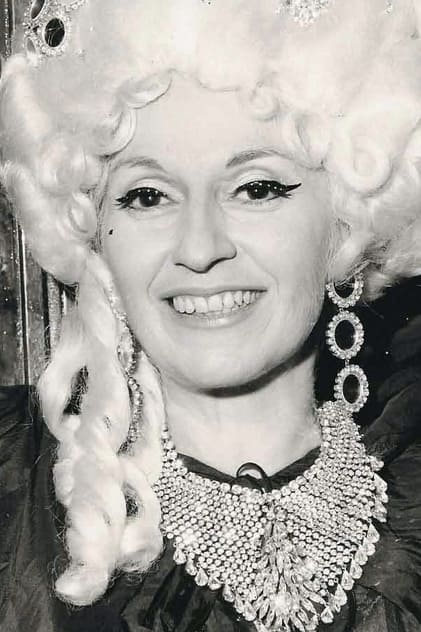
Cathy Berberian
Born: July 4, 1925
Died: March 6, 1983
in Attleboro, Massachusetts, USA
Died: March 6, 1983
in Attleboro, Massachusetts, USA
Catherine Anahid Berberian (July 4, 1925 – March 6, 1983) was an American mezzo-soprano and composer based in Italy. She worked closely with many contemporary avant-garde music composers, including Luciano Berio, Bruno Maderna, John Cage, Henri Pousseur, Sylvano Bussotti, Darius Milhaud, Roman Haubenstock-Ramati, and Igor Stravinsky. She also interpreted works by Claudio Monteverdi, Heitor Villa-Lobos, Kurt Weill, Philipp zu Eulenburg and others. As a recital curator, she presented several vocal genres in a classical context, including arrangements of songs by The Beatles by Louis Andriessen as well as folk songs from several countries and cultures. As a composer, she wrote Stripsody (1966), in which she exploits her vocal technique using comic book sounds (onomatopoeia), and Morsicat(h)y (1969), a composition for the keyboard (with the right hand only) based on Morse code.
Cathy Berberian was born in Attleboro, Massachusetts to Armenian parents, Yervant and Louise Berberian. The elder of two children, she spent the first 12 years of her life in Attleboro, then the family moved to New York City in 1937 where she graduated from Manhattan's Julia Richman High School for Girls. From an early age, she showed an interest in Armenian folk music and dance as well as traditional opera. While still in high school, she was the director and soloist of the Armenian Folk Group in New York City. For a time, she was an undergraduate at New York University, but left to take evening classes in theatre and music at Columbia University, working during the day to support her studies. She went on to study music in Paris with Marya Freund in 1948, and in 1949 she went to Milan to study singing at the Milan Conservatory with Giorgina del Vigo. In 1950, she received a Fulbright scholarship to continue her studies there. Although she had appeared in several student productions, radio broadcasts and informal concerts during the early 1950s, she made her formal debut in 1957 at Incontri Musicali, a contemporary music festival in Naples. The following year her performance of John Cage's Aria with Fontana Mix in its world premiere, established her as a major exponent of contemporary vocal music. Her American debut came in 1960 at the Tanglewood Music Festival where she premiered Circles by the Italian composer Luciano Berio.
From 1950 to 1964 Berberian was married to Luciano Berio, whom she met when they were students at the Milan Conservatory. They had one daughter, Cristina Berio, born in 1953. Berberian became Berio's muse and collaborator both during and after their marriage. He wrote, for her, Thema (Omaggio a Joyce) (1958), Circles (1960), Visage (1961), Folk Songs (1964–73), Sequenza III (1965), and Recital I (for Cathy) (1972). ...
Source: Article "Cathy Berberian" from Wikipedia in English, licensed under CC-BY-SA 3.0.
Cathy Berberian was born in Attleboro, Massachusetts to Armenian parents, Yervant and Louise Berberian. The elder of two children, she spent the first 12 years of her life in Attleboro, then the family moved to New York City in 1937 where she graduated from Manhattan's Julia Richman High School for Girls. From an early age, she showed an interest in Armenian folk music and dance as well as traditional opera. While still in high school, she was the director and soloist of the Armenian Folk Group in New York City. For a time, she was an undergraduate at New York University, but left to take evening classes in theatre and music at Columbia University, working during the day to support her studies. She went on to study music in Paris with Marya Freund in 1948, and in 1949 she went to Milan to study singing at the Milan Conservatory with Giorgina del Vigo. In 1950, she received a Fulbright scholarship to continue her studies there. Although she had appeared in several student productions, radio broadcasts and informal concerts during the early 1950s, she made her formal debut in 1957 at Incontri Musicali, a contemporary music festival in Naples. The following year her performance of John Cage's Aria with Fontana Mix in its world premiere, established her as a major exponent of contemporary vocal music. Her American debut came in 1960 at the Tanglewood Music Festival where she premiered Circles by the Italian composer Luciano Berio.
From 1950 to 1964 Berberian was married to Luciano Berio, whom she met when they were students at the Milan Conservatory. They had one daughter, Cristina Berio, born in 1953. Berberian became Berio's muse and collaborator both during and after their marriage. He wrote, for her, Thema (Omaggio a Joyce) (1958), Circles (1960), Visage (1961), Folk Songs (1964–73), Sequenza III (1965), and Recital I (for Cathy) (1972). ...
Source: Article "Cathy Berberian" from Wikipedia in English, licensed under CC-BY-SA 3.0.
Movies for Cathy Berberian...
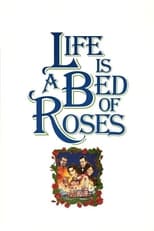
Title: Life Is a Bed of Roses
Character: La nourrice
Released: April 20, 1983
Type: Movie
In this whimsical fable, Resnais deftly interweaves three story lines: the creation of an early-20th-century utopia; romantic high jinks at a school conference; and a fantasy sparked by F/X pioneer Georges Méliès.

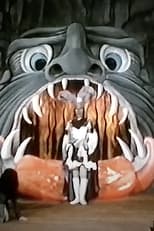
Title: Il Ballo Delle Ingrate
Character: Self - Soprano
Released: January 1, 1975
Type: Movie
Monteverdi's mini-opera, starring Cathy Berberian.



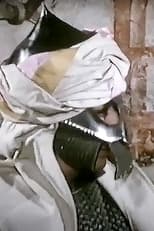
Title: Il Combattimento di Tancredi e Clorinda
Character: Self - Soprano
Released: January 1, 1970
Type: Movie
Monteverdi's mini-opera, starring Cathy Berberian.

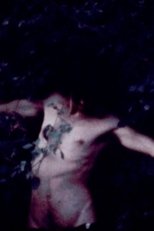
Title: RARA
Released: May 30, 1969
Type: Movie
In all of his work, Bussotti makes frequent reference to the body, to sexuality. This to remind musicians — especially classically trained ones — that they are not body-less angels, that they are not just their musical thoughts, that they are still, in the last analysis, flesh and bones. Thus the erotic is not for shocking, but to stress that making music involves the body in a very direct way.




Title: If the Unconscious Revolts
Released: November 15, 1967
Type: Movie
In this film, as in all my previous ones, there is a direct connection between inner urges and cinematic rendering. I tried to visualize my present aspiration to recover, through the various ways taught by one’s experience, the easiness, directness and ripeness proper to children’s relationships and affective life. This film is maybe a track of this path backwards. – A. L.
